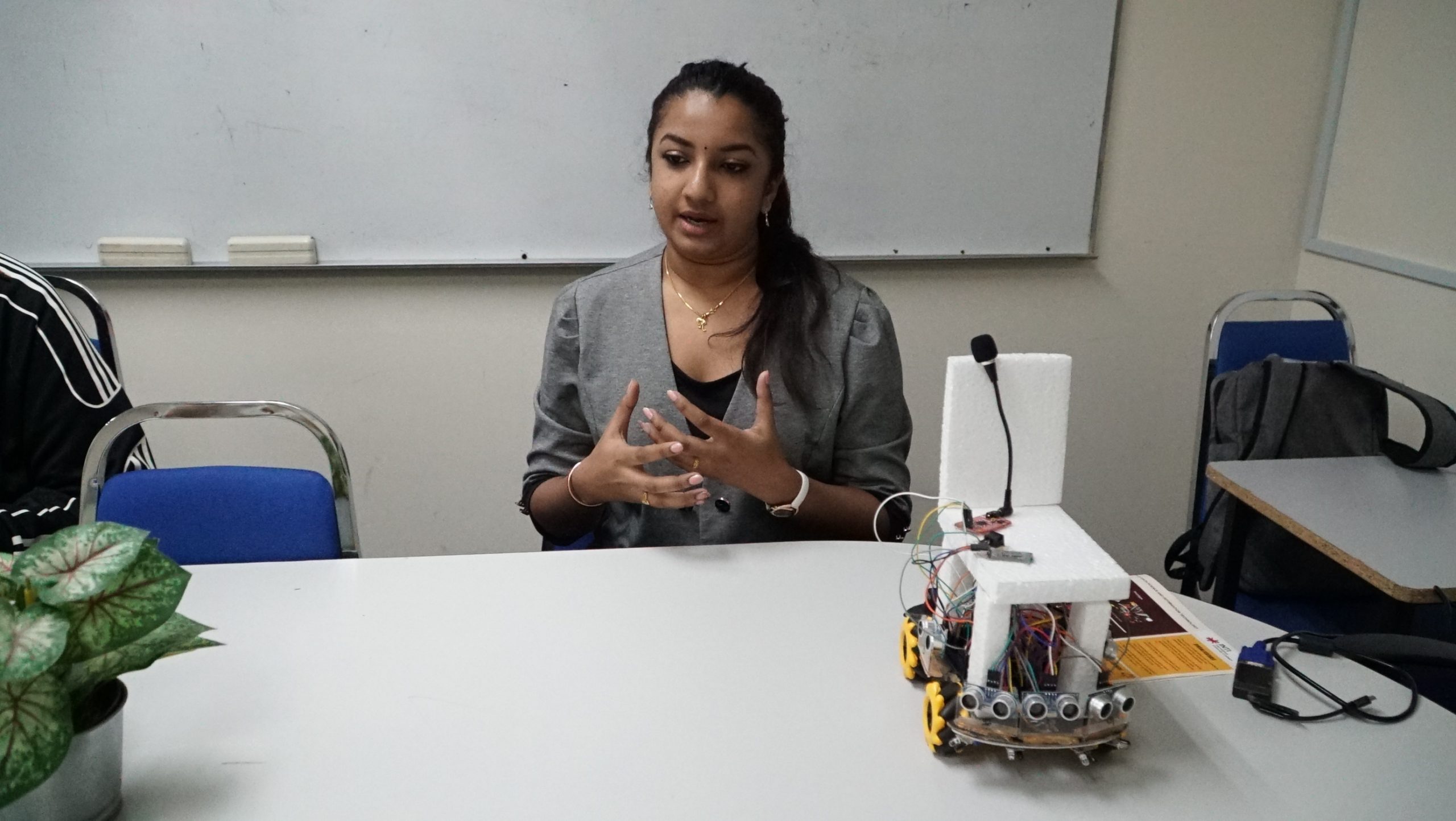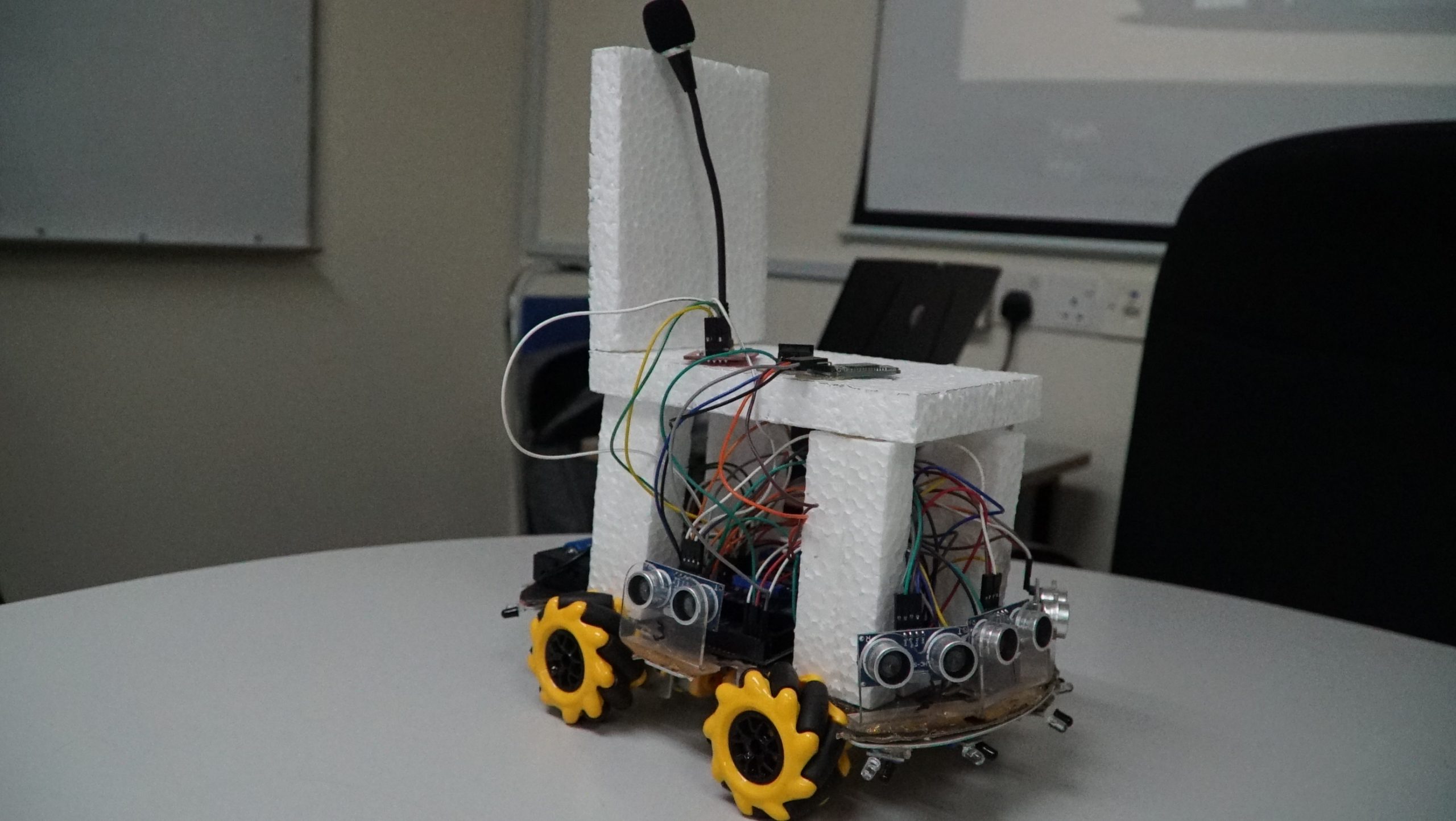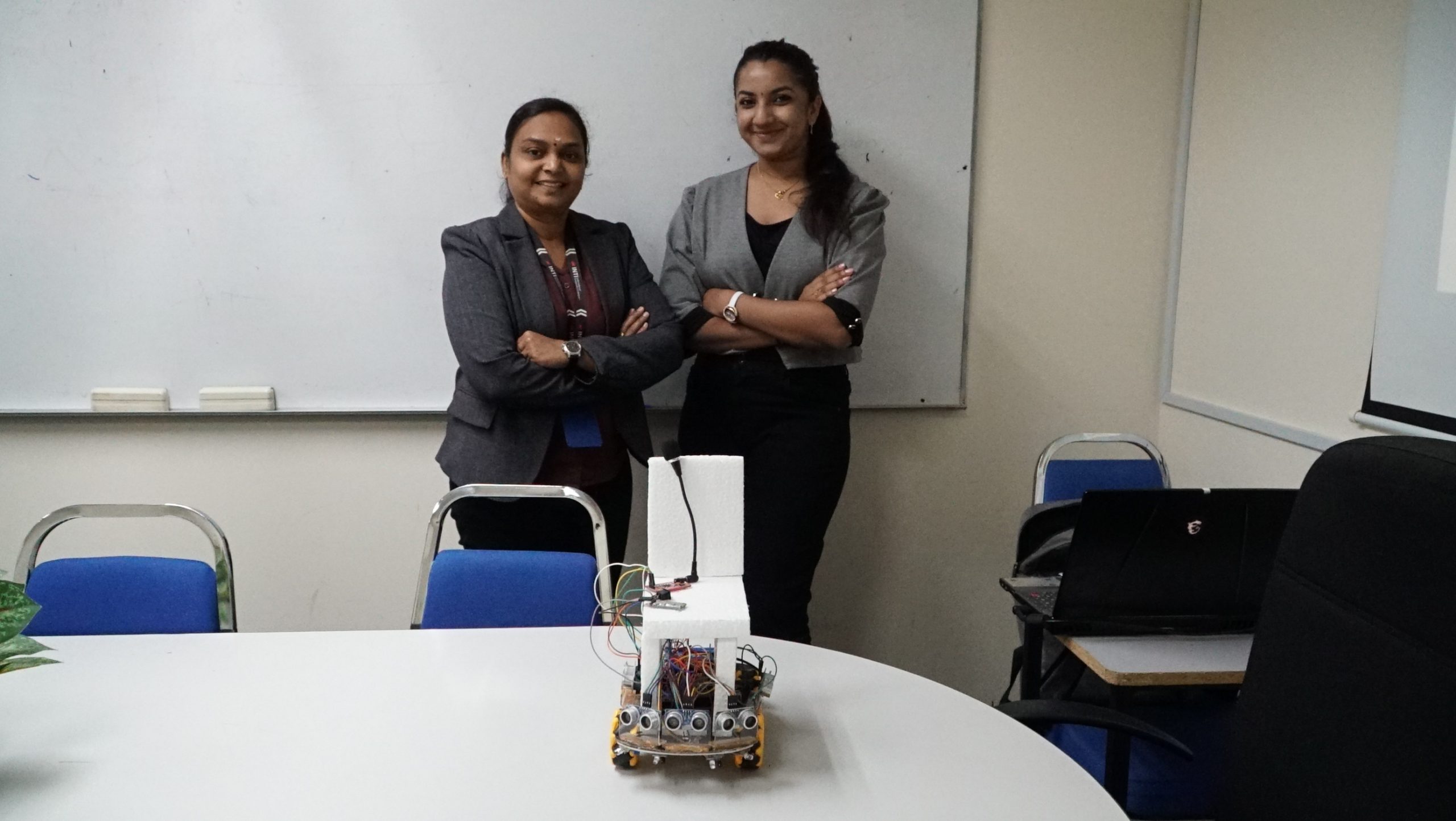In a recent SUC IEEE Innovation Competition 2023 organized by Skyline University College in the United Arab Emirates, Raynusri A/P Srivenkatarao, a BCSI computer science student, emerged as a winner with her groundbreaking project—an innovative voice-controlled wheelchair. Raynusri’s project was born out of her curiosity and desire to explore the world of Internet of Things (IoT) after a friend introduced her to the concept. With limited knowledge at the time, Raynusri embarked on a journey to understand IoT and its potential applications. Her research led her to identify the shortcomings of existing wheelchair solutions for individuals with weaker upper limbs, sparking the idea for her project.
Raynusri’s workflow involved several phases, with the initial and final stages being the most critical. Initially, she dedicated time to learning about IoT and how to integrate hardware components to create movement. This phase involved studying, purchasing necessary items, and breaking down the project into components. She tested voice recognition using LED lights to ensure that the system responded accurately to commands. Additionally, she incorporated obstacle avoidance features by implementing multiple sensors, leading her to switch to an Arduino Mega board to accommodate the increased number of pins required.

Throughout the integration process, Raynusri encountered various challenges. Ensuring accurate obstacle avoidance without causing discomfort to the users became a crucial aspect. To address this, she needed to incorporate more sensors, which prompted her to switch to a more capable Arduino Mega board. This adaptation allowed her to expand the project’s functionalities, including infrared sensors for obstacle detection.
During the competition, Raynusri felt a sense of nervousness due to the presence of approximately 30 projects from diverse backgrounds and innovative ideas. Being the second presenter, she experienced some anxiety while explaining her project and responding to questions. Despite her nervousness, Raynusri’s presentation and project stood out, ultimately securing her the second-place position.

Raynusri expressed her surprise at winning second place, as she had minimal expectations, considering the exceptional ideas presented by participants from renowned universities worldwide. She acknowledged the groundbreaking nature of many projects and felt honored to be recognized among such impressive competition.
Ir. Dr. Malathy Batumalay, Raynusri’s supervisor, played a pivotal role in her success. With her constant guidance, motivation, and encouragement, Dr. Malathy provided invaluable support throughout the project’s development. Raynu Sri emphasized that without Dr. Malati’s belief in her abilities and unwavering support, she may not have achieved as much as she did. From troubleshooting technical issues to exploring new ideas, Dr. Malathy’s guidance was instrumental in shaping Raynu Sri’s project and fostering her confidence.

Raynusri A/P Srivenkatarao’s journey from a novice in IoT to the creator of an innovative voice-controlled wheelchair highlights the power of determination and mentorship. Her project, which addresses the needs of individuals with weaker upper limbs who cannot afford powered wheelchairs, earned her well-deserved recognition in an international competition. With her success, Raynusri continues to inspire others and showcases the transformative potential of IoT in improving the lives of people with disabilities.
